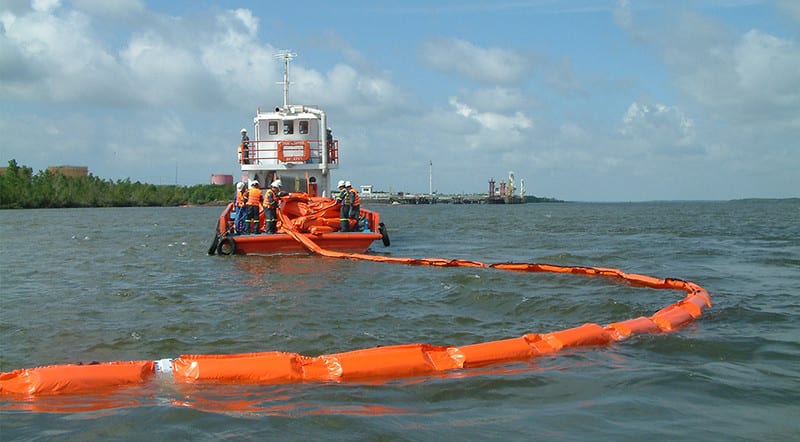As oil and gas operations offshore Guyana and Suriname intensify in the Guyana-Suriname Basin, the importance of collaboration between the two countries in preventing and responding to oil spills has been emphasised by Suriname’s Minister of Natural Resources, David Abiamofo.
During the Hunt Petty LP conference on Cross-Border Coordination in Spill Prevention and Response in the Guyana-Suriname Basin (GSB) on Tuesday, April 29, the natural resources minister noted that with the mammoth discoveries made by the two countries recently, the Basin has been transformed from a frontier oil province into an emerging basin.
“One of the very essential items within this regard is the cross-border collaboration and coordination in oil spill prevention and response,” he stated. According to the official, Suriname recognises the importance of proper emergency response planning and preparedness capability for all levels of industry that have the potential to cause harm to human health, the biological and social environment and the Suriname economy as a result of offshore spill incidents from the hydrocarbon handling operation.
Mr. Abiamofo said the conference provides an opportunity “for the industry and Government of both Suriname and Guyana to mutually examine critical areas in enhancing capacity for spill prevention and response to loss of subsea source control.” It was pointed out that Suriname developed and approved a National Oil Spill Contingency Plan (NOSCP) in 2016 to provide a framework for rapid and cooperative response to oil spill incidents. The natural resources minister continued to stress that “Suriname expects all organisations carrying out hydrocarbon handling within the territory of Suriname and areas for which Suriname carries certain responsibilities to have the following safeguards in place,” – listing the need for an oil Spill contingency plan and risk assessment, descriptions of initial actions, notifications and response strategies, and systems to allow update of such plans.
Guyana’s Civil Defense Commission (CDC) has responsibility for Guyana’s oil spill response and CDC Director-General Lieutenant Colonel Kester Craig gave participants an overview of the country’s NOSCP, which was operationalised back in January. The Plan was drafted in 2018, following several rounds of consultations, review and testing, and saw the input of United States Coast Guard and the International Maritime Organisation.
In June of this year, the CDC will be testing the plan in collaboration with several international agencies, including the U.S. Southern Command of the U.S. Coast Guard.



